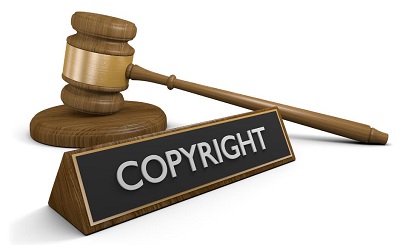Collective management organisations and efforts to protect rights owners (Part 1)

Though copyright laws are made to protect rights owners, individual management of rights is practically impossible for certain types of use. The impracticability of enforcing the laws individually – both for the owner of the rights and for the user – creates a need for collective management organisations.
This article presents how the collective management organisations (CMOs) in Ghana are acting in the interest and on behalf of the owners of rights. Ghana’s examples can be emulated by CMOs in other countries.
THE LAW AND CREATION OF COLLECTIVE MANAGEMENT ORGANISATIONS
Article 36(2) of the 1992 Constitution of the Republic of Ghana stipulates as follows: The State shall, in particular, take all necessary steps to establish a sound and healthy economy whose underlying principles shall include:
(a) the guarantee of a fair and realistic remuneration for production and productivity in order to encourage continued production and higher productivity;
(b) affording ample opportunity for individual initiative and creativity in economic activities and fostering an enabling environment for a pronounced role of the private sector in the economy.

These Constitutional provisions are in tandem with the objects of copyright law, which establish appropriate mechanisms to protect the work of creators and give them incentives to produce new works for public consumption.
Section 49 of the Copyright Act, 2005 (Act 690) gives a legal backing for the formation of collective copyright administration societies. The Section provides as follows:
1. Authors, producers, performers and publishers may form collective administration societies for the promotion and protection of their interest.
2. A collective administration society may, acting on the authority of the owner of a right, collect and distribute royalties and other remuneration accruing to the owner.
3. The Minister may, by legislative instrument (L.I.), make regulations for the formation, operation and administration of societies.
In line with the above provisions of the Copyright Act, three (3) collective management organisations have been formed in Ghana. These are:
• Ghana Music Rights Organization (GHAMRO)
• Reprographic Rights Organization of Ghana (CopyGhana)
• Audiovisual Rights Society of Ghana (ARSOG)
The activities and operations of these collective management organizations are regulated by law i.e. the Copyright Regulations, 2010 (L.I. 1962) and the Hon. Minister for Justice has oversight responsibility over the CMOs. The Regulations contain elaborate provisions on the formation, operation and the administration of the CMOs. CMOs are registered as companies limited by guarantee. However, it is the Minister for Justice who grants them a certificate of approval to operate as CMOs.
LEVY ON DEVICES USED FOR THE REPRODUCTION OF COPYRIGHT MATERIALS (PRIVATE COPYING LEVY)
The Copyright Act, 2005 (Act 690) imposes a levy on devices used for reproducing copyright materials. This levy is also known as the private copying levy. The levy, which is collected by the Customs Division of the Ghana Revenue Authority (GRA), covers both the media and equipment used to copy copyright protected materials, which are imported into the country.
The Copyright Regulations, 2010 (L.I. 1962) set out the devices on which the levy is imposed and the procedure for the distribution of the proceeds of the levy to rightsholders. Currently, the levy constitutes the largest source of income for the collective management organisations in Ghana.
GHANA MUSIC RIGHTS ORGANIZATION (GHAMRO)
GHAMRO’s principal roles are to manage the rights of music owners and to issue licences to music users. The membership of GHAMRO is made up of authors/composers and publishers. The organisation’s membership in 2015 was 3,277 and grew to 4,138 in 2016.
Collecting revenues for members
GHAMRO as a CMO, is responsible for ensuring that tariffs are designed to make commercial use of musical works benefit those who compose and publish them. The sources of revenue for the society are revenue from mechanical rights, performance rights, and other sources.
GHAMRO collects fees from users who engage in public performance of music. The organisation has established a vertical hierarchy of the various types of exploitation in which music is performed. Three classifications of exploitation have been made on the basis of the role played by music. These are:
(a) Exploitation where music is essential or indispensable (e.g. radio and TV broadcasting, live performances, disc jockeys);
(b) Exploitation where music creates the atmosphere and is thus necessary (e.g. night clubs, hotels, restaurants, pubs); and
(c) Exploitation where music serves as a background which is not strictly necessary but is favourable to have (e.g. caller tunes used by telecommunication companies).
Currently, the main user categories recorded in the organisation’s books are as follows:
1. Broadcasting stations (radio and television)
2. Hotels
3. Restaurants and bars
4. Night clubs, drinking bars and pubs
5. Financial institutions
6. Fuel retailing stations
7. Telecommunication operators
8. Live performance by various event organisers
9. Shops and malls
10. Barber shops and salons
The organisation has also taken steps to broaden its licensing stream to cover digital music licensing, airlines, road transport unions, secondary schools and churches.
The third source of revenue, which constitutes a very small proportion of total revenue generated, are the token fees charged for the registration of new members as well as for updating their records with new works.
[This piece is culled from a study conducted by Magnus Ebo Duncan (PHD), titled: “Economic contribution of copyright companies in Ghana”]













